Five things you can do for winter preparations
Every year in November and December, I go through typical winter preparations. This year has been no different. While I realize that my preparations for winter it’s probably vastly different from yours, given the fact that I live in a rural area, there are still some things you can do right now to prepare for the oncoming season.
1. Prepare your winter food
At this point, I tried to get as much food stocked up for the winter. Most of this entails drying fruits and vegetables that I get either from the Farmers Market or from the local food bank. Quite often in my area, they give you far more produce then you could possibly eat, so it behooves oneself to take advantage of the extra food. I have a dehydrator tha
A lot of people can and freeze — and I do this too — but I’ve found that I have a lot more room when it comes to dehydrating. You can store a lot more dehydrated food than canning or freezing — any you have the bonus of it staying good for a long time if stored in airtight containers.
I usually find that I have more peppers, carrots, and celery then I can possibly use in a few days. While root vegetables tend to stay pretty well for a while, I really find dehydrating them makes a lot more sense. When I make a stew or pot roast, all I have to do is grab my dehydrated vegetables from the cupboard instead of wondering what that nasty black stuff is at the bottom of my vegetable tray.
You can easily purchase a dehydrator for about $60, give or take, and save a boatload of money on produce you would have normally thrown away. You can dehydrate lettuce, tomatoes, peppers, potatoes, carrots, celery, pineapple, cranberries, peaches, apples, oranges, lemons… just about anything you care to imagine.
2. Hunting
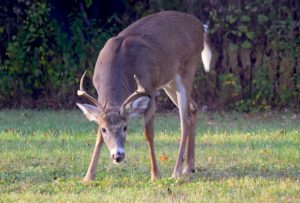 Fall means fall hunting. Hunting means excellent venison, turkey, and grouse, so I look forward to it. Unlike many people, my family relies on hunting for most of our meat. That means I make offerings to Skadi, Tyr, and Ullr, as well as the local wights for success.
Fall means fall hunting. Hunting means excellent venison, turkey, and grouse, so I look forward to it. Unlike many people, my family relies on hunting for most of our meat. That means I make offerings to Skadi, Tyr, and Ullr, as well as the local wights for success.
Even if you’re a city dweller, chances are there are ways to hunt in your area. In the United States, you’d be surprised at the urban hunting opportunities available. Never hunted or shot a firearm? There are classes for hunter safety and for firearm safety. Prefer something more akin to our ancestors? Bowhunting is big.
Don’t think hunting means deer only. Small game such as rabbit, squirrel, and raccoon can provide decent meals (although I look at squirrel and trash pandas as a last resort for my food). Some people really love small game meat, so give it a try.
Also grouse, quail, chukar, duck, goose, and turkey are all excellent foods, and I find grouse better than chicken and goose remarkably yummy. Wild turkey (the bird, not the alcohol) is amazing if brined properly. I prefer it over store-bought turkey.
3. Gathering Food
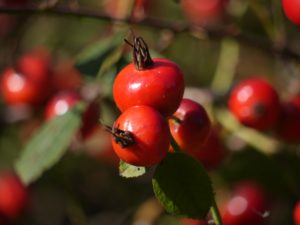 Fall is usually the time I gather wild rosehips, elderberries, and any chokecherries I’ve missed. This year, we had a really bad cold snap early in Fall that pretty much killed off the berries. So, luckily I had gathered chokecherries and made syrup this summer, and I have a lot of dried rosehips and elderberries from the previous year.
Fall is usually the time I gather wild rosehips, elderberries, and any chokecherries I’ve missed. This year, we had a really bad cold snap early in Fall that pretty much killed off the berries. So, luckily I had gathered chokecherries and made syrup this summer, and I have a lot of dried rosehips and elderberries from the previous year.
I honestly stay within my comfort zone when it comes to foraging. I have a lot of book knowledge when it comes to certain plants, but I stay within the plants I know for certain. If I came across some morels, I’d go for them, but I don’t recognize other mushrooms and stay away from them. If this is something you’re interested in, I’d recommend finding a mentor or looking for a class on the subject. Get it wrong, and you could poison yourself.
4. Plan Your Yule
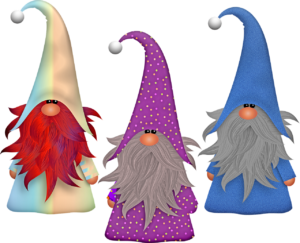 It’s not too late to plan Yule for yourself and your family. Even if you live in a Christian (or other faith) household, you can still plan on certain days/celebrate the Heathen holiday. There’s no reason why you can’t celebrate Mother’s Night and Solstice as well as Christmas Eve and Christmas. Sure, your family may look at you oddly when you suggest spending December 20th or 21st reminiscing about loved ones who are no longer with you. Or, they may appreciate it. I’ll try to create another post on things to do for Mother’s Night—hopefully before December 20th!
It’s not too late to plan Yule for yourself and your family. Even if you live in a Christian (or other faith) household, you can still plan on certain days/celebrate the Heathen holiday. There’s no reason why you can’t celebrate Mother’s Night and Solstice as well as Christmas Eve and Christmas. Sure, your family may look at you oddly when you suggest spending December 20th or 21st reminiscing about loved ones who are no longer with you. Or, they may appreciate it. I’ll try to create another post on things to do for Mother’s Night—hopefully before December 20th!
Don’t forget to plan Christmas Eve and Christmas as well. Yes, you may not believe in the whole mythos, but honestly, where’s the fun of being a spoilsport for your family? Kids love Santa Claus, and you can certainly enjoy a secular Christmas. Plus, the Tomte are looking for oatmeal with a pad of butter on Christmas morning.
5. Spend Some Time in Nature
Now, more than ever—especially with the pandemic—you need to go into nature and enjoy its beauty. (Bring a mask with you, in case you run into people.) If you live in the north where we have snow, enjoy the amazing beauty of a snowy forest. No snow? That’s okay. Even the stark beauty of barren branches and the shortening of days will remind you that on the winter solstice, the days will grow longer again. And warmer days will soon be here.
So, how are you planning on preparing for winter? Leave your thoughts in the comments.
Disclaimer: This post contains affiliate links. If you purchase something from these links, I get a small stipend which helps support The Rational Heathen. I would encourage you to support my site. Thanks. Did you know you can become my patron for as little as $5 a month? This entitles you to content not posted anywhere else. Plus you get to see posts like this three days before the public! Without patrons, I’d be having a very hard time keeping this blog going. Become a patron today!Become a Patron!

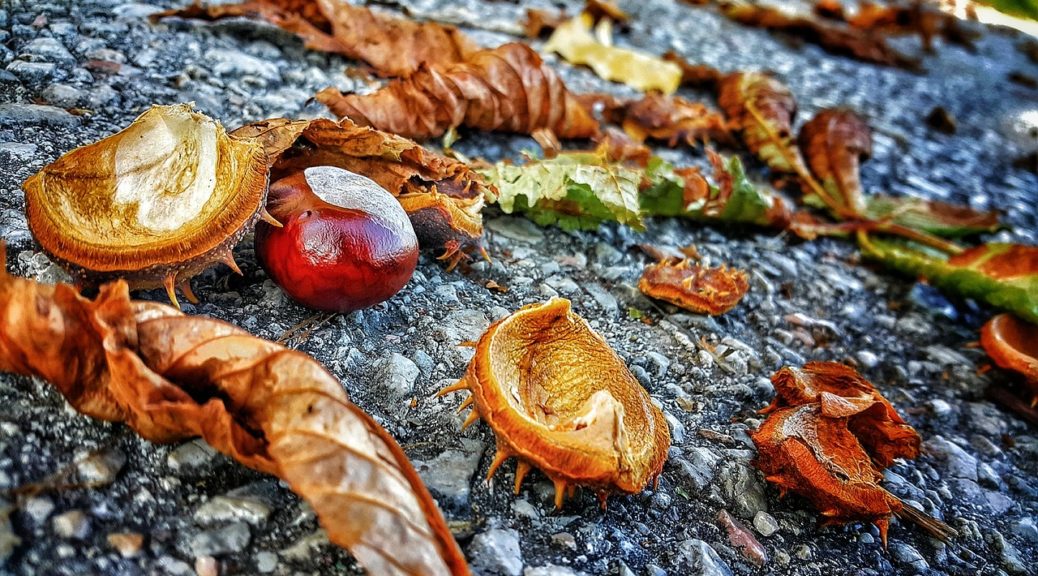
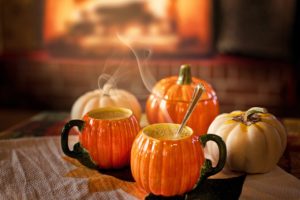 Now that
Now that 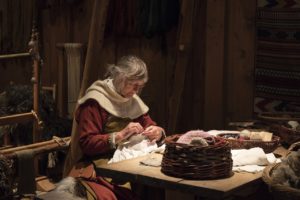 there.)
there.) 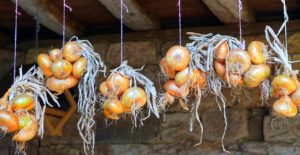 storehouses where you kept your smoked and salted meats for winter naturally kept the meat cold. The fall temperatures often dipped below freezing, but on days when the temperatures were above freezing, the air still acted like a refrigerator. Smoking and salting were ways of stabilizing the meat so it didn’t turn rancid during the occasional temperatures fluctuations. Hence, hunting for big game often happened in the fall and winter months. Unless you were planning on eating the whole critter in a few days, you really had no way to preserve the meat during the summer months, unless you were drying it. Hence eating small game and young animals were more fitting for the spring and summer months.
storehouses where you kept your smoked and salted meats for winter naturally kept the meat cold. The fall temperatures often dipped below freezing, but on days when the temperatures were above freezing, the air still acted like a refrigerator. Smoking and salting were ways of stabilizing the meat so it didn’t turn rancid during the occasional temperatures fluctuations. Hence, hunting for big game often happened in the fall and winter months. Unless you were planning on eating the whole critter in a few days, you really had no way to preserve the meat during the summer months, unless you were drying it. Hence eating small game and young animals were more fitting for the spring and summer months.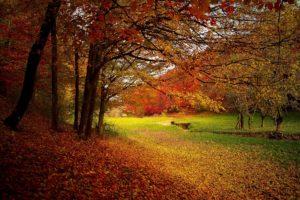 During this time, people were busy drying fruits and vegetables. Canning hadn’t been invented until the Napoleonic Wars, so that didn’t happen. People did store in what food they preserved for the upcoming winter months, presumably in
During this time, people were busy drying fruits and vegetables. Canning hadn’t been invented until the Napoleonic Wars, so that didn’t happen. People did store in what food they preserved for the upcoming winter months, presumably in  Beyond hunting and foraging for food as well as harvesting and preserving food, the Northern peoples spent time enjoying themselves too. Those who lived in the Viking era enjoyed playing board games, drinking games, and other indoor games when the weather got too cold or in the evenings when they had a little time to relax. When they had free time outside and the weather wasn’t too cold or snowy, they’d practice fighting and even hold mock battles to improve their skills. Some of these “games” ended up pretty bloody.
Beyond hunting and foraging for food as well as harvesting and preserving food, the Northern peoples spent time enjoying themselves too. Those who lived in the Viking era enjoyed playing board games, drinking games, and other indoor games when the weather got too cold or in the evenings when they had a little time to relax. When they had free time outside and the weather wasn’t too cold or snowy, they’d practice fighting and even hold mock battles to improve their skills. Some of these “games” ended up pretty bloody.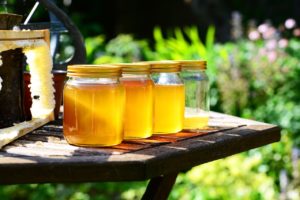 and Hel, even
and Hel, even 